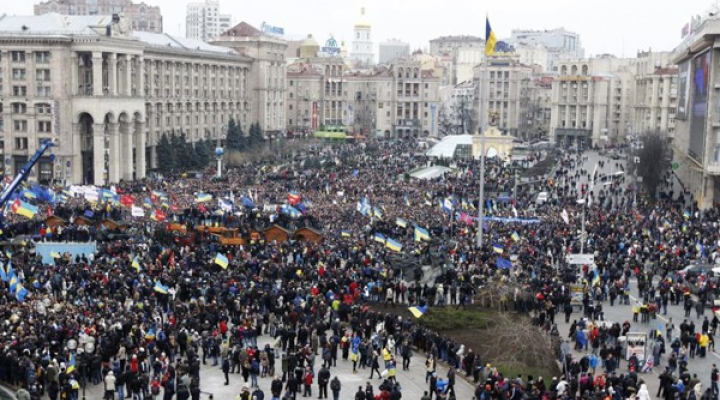The EP calls for a political solution to the crisis in Ukraine
The European Parliament debated the issue of the Ukrainian conflict during the plenary session of 5 February, taking a unanimous position in the matter on the 6th.
The MEPs voted for a quick political solution: they requested the European Commission and the member states to draft and implement a feasible strategy that would allow the EU to take decisive action, and would protect the European values demanded by the protesters in the country, putting a stop to the violence. DAHR MEP Csaba Sógor – also considering the situation of the Hungarian community living in Ukraine – stressed the importance of communicating with the entire Ukrainian society.
The Transylvanian MEP reminded his colleagues that the cause of the conflict was linked to the EU: the protests, which today are led in the name of civil rights and democracy, started when the signing of the bilateral agreement was postponed.
The speech of DAHR MEP Csaba Sógor can be read below:
"The European Union has an important role to play in solving the conflict in Ukraine, especially considering that that spark that started the series of events we often refer to as a revolution was delaying the rapprochement between Ukraine and the EU. The protesters in Ukraine are pro-Europe and pro-EU, and this is reason for optimism. However, we cannot overlook two major aspects: for the time being the protesters are listening to the opposition parties, but it is also possible that chaos may set in, and some groups may not feel bound by any future agreements. The other aspect that the EU cannot afford to overlook is the attitude of the Ukrainian society: we need to communicate with the eastern part of the country also, because a closer cooperation between Ukraine and the EU would benefit them as well. We need to avoid treating the country’s eastern or western orientation as an either-or issue: Ukraine was always closely tied to Russia, and this will be the case even if it signs an association agreement with the EU."
The Transylvanian MEP reminded his colleagues that the cause of the conflict was linked to the EU: the protests, which today are led in the name of civil rights and democracy, started when the signing of the bilateral agreement was postponed.
The speech of DAHR MEP Csaba Sógor can be read below:
"The European Union has an important role to play in solving the conflict in Ukraine, especially considering that that spark that started the series of events we often refer to as a revolution was delaying the rapprochement between Ukraine and the EU. The protesters in Ukraine are pro-Europe and pro-EU, and this is reason for optimism. However, we cannot overlook two major aspects: for the time being the protesters are listening to the opposition parties, but it is also possible that chaos may set in, and some groups may not feel bound by any future agreements. The other aspect that the EU cannot afford to overlook is the attitude of the Ukrainian society: we need to communicate with the eastern part of the country also, because a closer cooperation between Ukraine and the EU would benefit them as well. We need to avoid treating the country’s eastern or western orientation as an either-or issue: Ukraine was always closely tied to Russia, and this will be the case even if it signs an association agreement with the EU."











